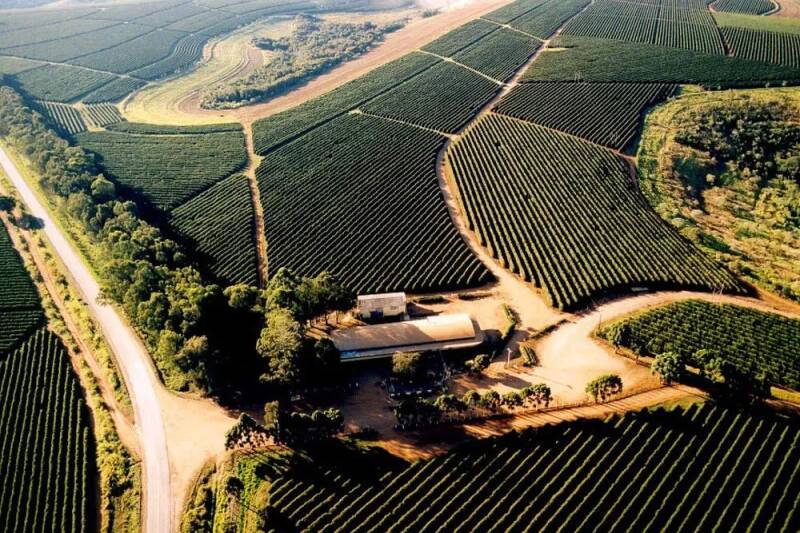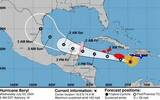Brazil| Introduction to the coffee producing area of Milas Gerais
Brazilian coffee plays an important role in the global coffee market because Brazil is the world's largest coffee producer and exporter, accounting for 1/3 of the world's coffee exports.
Brazil is not only the South American country, but also the largest country in South America, with a strong industrial base and developed agriculture. According to historical records, as early as 1727, France restricted the export of coffee beans in Guinaya, and a Brazilian sergeant major won the trust of the wife of the governor of French Guiana at the end of a local trip. the lady gave him an Arabica coffee seed and brought it back to the Brazilian state of Para.

Brazil has a vast territory and abundant resources, and the topography is mainly divided into two parts. The south-central part of the country is mainly the Brazilian plateau above 500 meters above sea level, while the northwest of the country is mainly the plain and Amazon basin below 200 meters above sea level. And most of Brazil is tropical, with a tropical rain forest climate in the north, a savanna climate in the middle and a subtropical monsoon humid climate in the south. The average annual temperature in the Amazon plain is 2528 ℃, and the average annual temperature in the south is 16,19 ℃.
Brazil has sedimentary volcanic debris soil rich in organic matter and minerals, good drainage, many rivers, tropical rain forests and a suitable climate, which makes the country very suitable for growing agricultural products such as coffee. At that time, coffee was grown in Para and quickly extended to other states of Brazil. Brazil already produced 45% of the world's coffee production in 1886 and is now the world's largest coffee producer and exporter.

There are 26 states in Brazil, and 17 of them grow and export coffee, of which Parana, Sao Paulo, Miraguillas and Esp í rito Santo account for 80% of the total output. Arabica and Robsta are currently grown in Brazil.
Minas Gerais: Brazil's largest coffee-producing state, accounting for 30 per cent of the country's coffee production. The state is located in southeastern Brazil, do not think that the state is high in production and lacking in quality. Because the state has some of Brazil's highest mountains, these mountains can effectively resist the sea breeze from the Atlantic Ocean, so that coffee trees are protected, thus growing and growing excellent coffee trees.
In addition, there are many sub-producing areas in the state of Milas Gerais, such as Syracuse and South Minas. Qianjie Coffee has a half-sun-treated Shirado coffee, as an entry selection, with chocolate flavor and nutty flavor, taste balanced.
South Minas, known as the heart of the Brazilian coffee industry, has a centuries-old tradition of coffee production and a deep-rooted local coffee culture. Here are mostly mountains and hills, between 700-1200 meters above sea level, so there is less use of mechanical harvesting. Therefore, South Minas Coffee is famous for its quality, and there are also many well-known coffee estates, such as Hope Manor, Ipanema Manor, Saint-Tain Manor and so on.
Founded in 1969, Ipanema Manor Ipanema has more than 5500 hectares of land and 14 million coffee trees. It is also a founding member of the Brazilian Fine Coffee Association (BSCA). The estate has three estates, of which "Fazenda Rio Verde" Rio Vader is the most famous.
Located in the heart of the Manticella Mantiqueira Mountains in South Minas, Fazenda Rio Verde Rio Vader is a 1500-hectare estate that was founded in 1887 and was acquired by Ipanema in 2002.
There is a rather pristine forest area here, with the Mandy Kaila Mountains providing a suitable climatic environment and an appropriate amount of rainfall. Coffee is grown at an altitude of about 1000-1310 meters, surrounded by woodland, waterfalls, hot springs and mountains. Grow coffee while growing other crops, and have a professional team dedicated to excellence and innovation to control quality. It has complete technical coffee grinding facilities and storage infrastructure in order to produce high-quality coffee and won the first place in Brazil's Outstanding Cup COE with a score of 92.15 in 2023.
Important Notice :
前街咖啡 FrontStreet Coffee has moved to new addredd:
FrontStreet Coffee Address: 315,Donghua East Road,GuangZhou
Tel:020 38364473
- Prev

The bully could not be persuaded by the air-conditioning, so the coffee shop called the police and carried him away!
▲ Click to pay attention| Daily Boutique Coffee Culture Magazine Coffee Workshop At about 2 pm the day before yesterday, a woman about 20 years old entered the store with big bags and small bags of luggage and directly piled things on the seats, occupying a total of 2 tables and 4 seats in the store. She herself wears a hoodie hat to cover most of her face, or
- Next

Hurricane is coming! Will affect the coffee industry in many Central American countries
As early as early as June, the National Oceanic and Atmospheric Administration (NOAA) issued a report stating that the peak of the hurricane season would begin in June. In addition, this year's Atlantic hurricane season will become "extraordinary" and may face up to three times the usual risks. In July, the hurricane season officially entered, and
Related
- What grade does Jamaica Blue Mountain No. 1 coffee belong to and how to drink it better? What is the highest grade of Blue Mountain coffee for coffee aristocrats?
- What are the flavor characteristics of the world-famous coffee Blue Mountain No. 1 Golden Mantelin? What are the characteristics of deep-roasted bitter coffee?
- Can I make coffee a second time in an Italian hand-brewed mocha pot? Why can't coffee be brewed several times like tea leaves?
- Hand-brewed coffee flows with a knife and a tornado. How to brew it? What is the proportion of grinding water and water temperature divided into?
- What is the difference between Indonesian Sumatra Mantinin coffee and gold Mantinin? How to distinguish between real and fake golden Mantelin coffee?
- What does bypass mean in coffee? Why can hand-brewed coffee and water make it better?
- Unexpected! Ruixing Telunsu lattes use a smoothie machine to foam milk?!
- % Arabia's first store in Henan opens into the village?! Netizen: Thought it was P's
- Does an authentic standard mocha coffee recipe use chocolate sauce or powder? Mocha Latte/Dirty Coffee/Salty Mocha Coffee Recipe Share!
- What is the difference between Vietnam egg coffee and Norway egg coffee? Hand-brewed single product coffee filter paper filter cloth filter flat solution!

